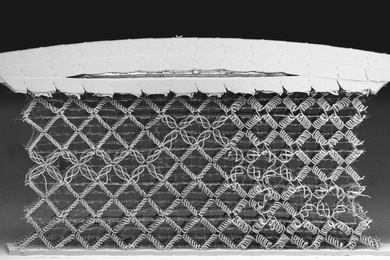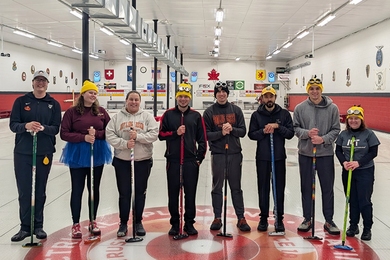On the move: Mobile Partners User Group
The new MIT Mobile Partners User Group (MPUG) welcomes participants who are interested in software and services for various mobile devices/PDAs. Initially, the group will gather input from the community on what mobile options are desired. IS&T will work with MPUG to develop appropriate solutions that will meet most of the community's needs in this area. Currently, IS&T officially supports only mobile devices/PDAs running Palm OS; however, with input from MPUG, it is working to define a strategy for future mobile support.
MPUG meetings are held the third Friday of each month at 2 p.m. in the N42 Demo Center. The meeting schedule is posted on the Mobile Partners User Group page at web.mit.edu/mobilepartners. MPUG maintains a mailing list (mobilepartners@mit.edu) for discussions, meeting announcements and information of interest to mobile users. This list is for members of the MIT community only. To join or remove yourself from the list, go to mailman.mit.edu/mailman/listinfo/mobilepartners. If you have questions or suggestions, contact Andrew Yu, the IS&T mobile devices platform coordinator, at andrewyu@mit.edu.
NERCOMP discounts
MIT is an active participant in the Northeast Regional Computing Program, better known as NERCOMP. With 225 member institutions from nine northeastern states, NERCOMP's goal is to foster communication about the use of computers, networks, and information technology in academic settings. NERCOMP is known for its topical seminars and special-interest groups; training opportunities; licensing agreements with vendors; and an annual conference in March.
Members of the MIT community are eligible for significant discounts to NERCOMP events. To find out about upcoming workshops, go to www.nercomp.org/events/. To get on the NERCOMP mailing list, go to the organization's web site and then to the member login section on the upper right. Then click on "register here" to sign up.
The laws of simplicity
John Maeda, a graphic designer, visual artist and computer scientist at the MIT Media Lab, wants to keep things simple. Technology is meant to give us more flexibility and freedom, but devices crammed with menus and features often make users feel overwhelmed. In his new book, "The Laws of Simplicity" (MIT Press), Maeda outlines 10 laws and three keys for achieving simplicity in the design of technology products. He also proposes a few down-to-earth methods for making it happen: His acronym SHE, for example, stands for shrink, hide and embody.
To learn more about the book, visit the MIT Press catalog at mitpress.mit.edu. Maeda also maintains a blog; he calls it his "scratch pad of thought regarding the theme of simplicity."
3DOWN
You can get timely information about the status of major communications and computing services at MIT via the 3DOWN Services Status page at 3down.mit.edu/. It's also a featured link on the IS&T home page at web.mit.edu/ist/.
The 3DOWN web page is one of the key ways that IS&T informs community members of planned outages, such as preventative maintenance service to the SAP production environment and telephone upgrades. 3DOWN is also the place to look for details about unplanned outages. To learn whether your problem is local or general, check the 3DOWN page before you call for help. Server and network problems--such as outages that affect entire MIT buildings and critical links--are announced here. After an extended outage has been addressed, IS&T posts an explanatory note on 3DOWN regarding its resolution.
If you have feedback about 3DOWN, send mail to 3down-admin@mit.edu.
Digitalk is compiled by Information Services and Technology.
A version of this article appeared in MIT Tech Talk on November 22, 2006 (download PDF).





